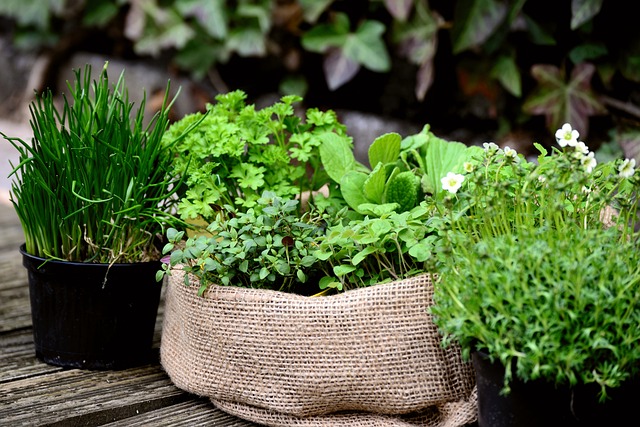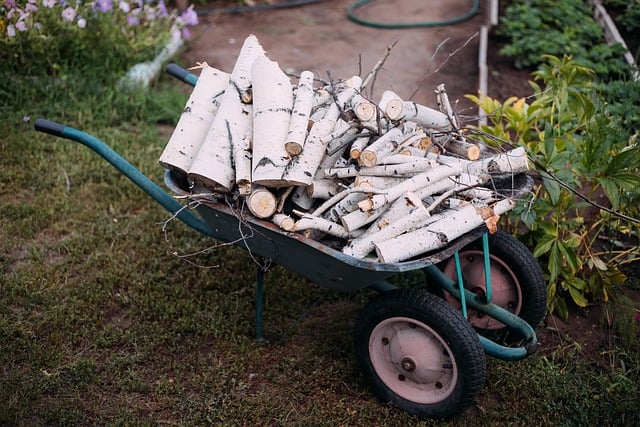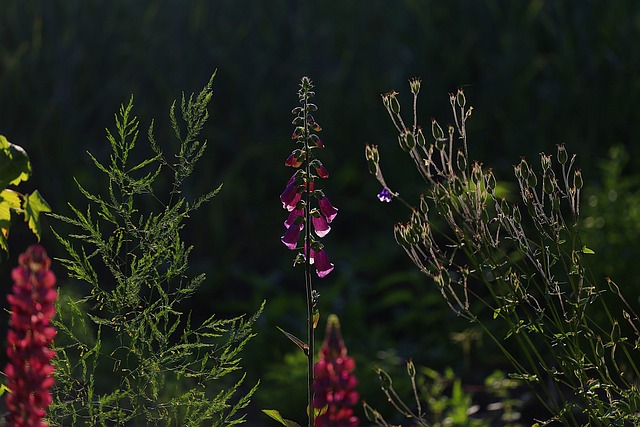Spring preparations, including strategic planning and holistic practices like pruning, fertilizing, and fall cleanup, are essential for year-round garden health. Seasonal garden maintenance involves identifying areas needing attention, implementing optimal pruning, timely fertilizing, and thoughtful winter protection through mulching and pest control to ensure plants thrive throughout all seasons.
Spring marks the perfect time to prepare your garden for a thriving summer. This article guides you through essential seasonal garden maintenance, setting the stage for robust plant growth. We explore ‘spring garden preparation’ with tips on cleaning soil, planting flowers and vegetables, and fertilizing schedules. Discover efficient irrigation techniques for healthy plants during ‘summer watering tips’. Learn fall cleanup strategies, protect your garden from winter damage, and implement natural pest control for a balanced ecosystem, covering all aspects of ‘seasonal garden maintenance’ to ensure vibrant, year-round growth.
- Seasonal Garden Maintenance: Setting the Stage for Thriving Plants
- – Assessing Last Season's Performance
- – Identifying Areas Needing Attention
- Spring Garden Preparation: Nurturing a Vibrant Start
Seasonal Garden Maintenance: Setting the Stage for Thriving Plants

Spring marks a pivotal time for gardens, signaling a fresh start and the perfect opportunity to prepare for optimal growth. Seasonal garden maintenance is an ongoing process that involves strategic planning and specific actions tailored to each season. By implementing effective spring preparation techniques, gardeners can set the stage for thriving plants throughout the year.
This period offers a chance to assess the previous growing season, address any issues, and make necessary adjustments. It includes crucial tasks such as pruning seasonal plants, ensuring proper fertilizing schedules aligned with the changing seasons, and adopting fall cleanup strategies to prevent pest infestations. Additionally, preparing for summer watering tips by installing efficient irrigation systems and applying mulch to protect plants during colder months is essential. These proactive measures contribute to a robust and healthy garden ecosystem.
– Assessing Last Season's Performance

As the seasons change, it’s crucial to assess your garden’s performance from the previous year. This involves evaluating what worked well and identifying areas that need improvement. Seasonal garden maintenance is not just about preparing for the new season; it’s also a chance to learn from past experiences. For instance, if certain plants struggled, consider adjusting their placement or choosing varieties better suited to your climate.
Spring is an ideal time to start this process. You can begin with a thorough inspection of your garden, taking note of any dead or diseased plants that need removal. This initial step sets the foundation for successful summer watering tips and fall cleanup strategies. Additionally, think about protecting your garden during winter to prevent damage from extreme temperatures and consider pruning seasonal plants now to encourage healthy growth when they bloom again. Don’t forget to align your fertilizing schedules by season to provide necessary nutrients for optimal plant health. Similarly, seasonal pest control measures should be considered to safeguard your garden throughout the year, and mulching can help with managing these changes, enhancing soil health, and preserving moisture.
– Identifying Areas Needing Attention

Identifying Areas Needing Attention is a crucial step in preparing your garden for optimal growth during and beyond spring. Start by assessing the overall health of your garden, noting areas that might have been affected by winter weather or neglected over the colder months. Look for signs of damage to trees, shrubs, and perennials, as well as any weeds that have taken hold. Seasonal garden maintenance involves addressing specific needs at each phase of the year. In spring, focus on tasks like pruning seasonal plants to encourage new growth and fertilizing schedules tailored to this time of renewal. For instance, applying a balanced fertilizer in early spring promotes robust plant development.
Additionally, consider the need for mulching, which is an effective strategy for retaining moisture during warmer months. As summer watering tips become essential, having fresh mulch around your plants can significantly reduce water evaporation from soil surfaces. Conversely, in preparation for fall cleanup strategies and winter garden protection, remove any dead plant matter and apply protective layers to help plants weather the colder season. Seasonal pest control is another vital aspect; inspect your garden for common pests active during each season and implement appropriate controls to prevent infestations.
Spring Garden Preparation: Nurturing a Vibrant Start

Spring is a time of rebirth and renewal in the garden, offering a fresh start for gardeners to nurture their outdoor spaces. To ensure a vibrant and healthy garden throughout the seasons, proper preparation during spring is key. This involves several essential steps, including pruning seasonal plants to encourage new growth, and fertilizing according to the changing needs of your plants as they come out of dormancy. Seasonal garden maintenance plays a crucial role in setting the stage for robust plant development.
One critical aspect is understanding when and how much to water, especially during the hot summer months. Implementing effective watering strategies, like efficient irrigation systems or targeted hand-watering, ensures your plants receive adequate moisture without wasting water. Similarly, fall cleanup strategies prepare the garden for winter protection. Removing dead foliage and debris not only prevents pest issues but also provides a clean canvas for the next growing season. Protecting your garden through winter involves specific measures, such as mulching to insulate roots and guard against extreme temperatures. These seasonal practices contribute to overall plant health and resilience.
In preparing your garden for growth, seasonal maintenance is key. By assessing past performance and identifying areas needing attention, you set the stage for thriving plants throughout the year. Spring preparation involves nurturing your garden with essential tasks like pruning, fertilizing, and mulching, while also considering summer watering tips, fall cleanup strategies, and winter protection methods. Incorporating these practices ensures a vibrant and healthy garden, ready to face each season with resilience and beauty.
